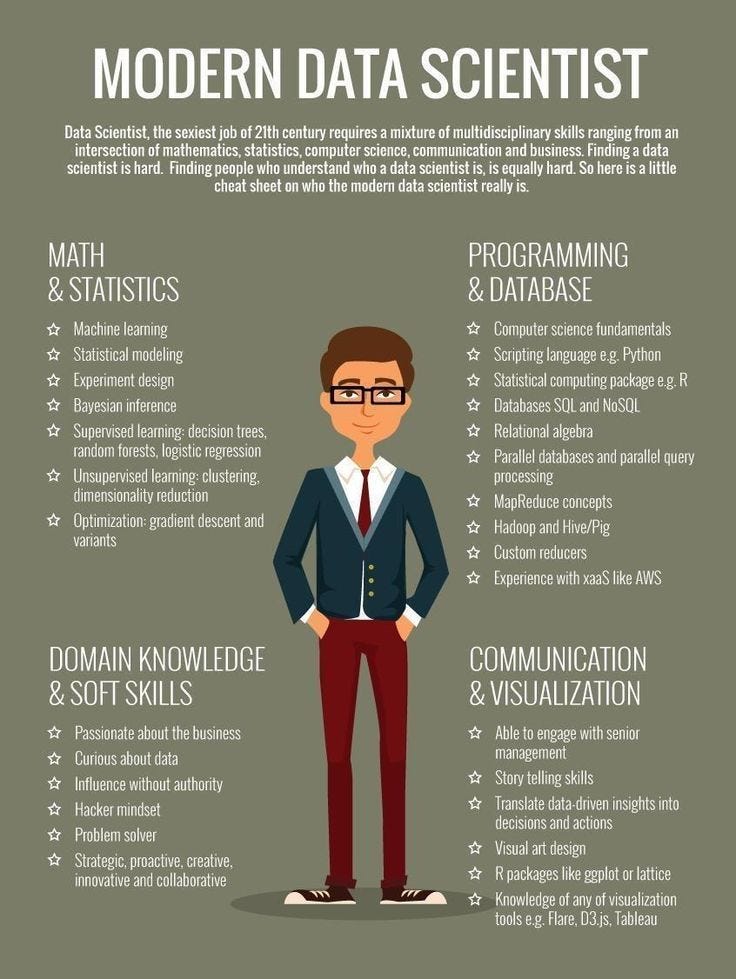Introduction
Data scientists are the no. 1 most promising job in America for 2019, according to a report from LinkedIn. Hence, this comes as no surprise: Data scientist topped Glassdoor’s list of Best Jobs in America for the past three years, with professionals in the field reporting high demand, high salaries, and high job satisfaction.
Also, with the increase in demand, employers are looking for more skills in modern day data scientists. Furthermore, a modern-day data scientist needs to be a good player in aspects like maths, programming, communication and problem-solving.
In this blog, we are going to explore if knowledge of mathematics is really necessary to become good data scientists. Also, we will try to explore ways, if any, through which one can become a good data scientist without learning maths.
What all it takes for a modern day Data Scientist
Data scientists continue to be in high demand, with companies in virtually every industry looking to get the most value from their burgeoning information resources. Additionally, this role is important, but the rising stars of the business are those savvy data scientists that have the ability to not only manipulate vast amounts of data with sophisticated statistical and visualization techniques but have a solid acumen from which they can derive forward-looking insights. Also, these insights help predict potential outcomes and mitigate potential threats to the business. Additionally, key skills of modern-day data scientists are as follows:

source: http://datascientistyuyuria.blogspot.com/2017/03/mckinsey-data-scientist.html
1. Critical thinking
Data scientists need to be critical thinkers, to be able to apply the objective analysis of facts on a given topic or problem before formulating opinions or rendering judgments. Also, they need to understand the business problem or decision being made and be able to ‘model’ or ‘abstract’ what is critical to solving the problem, versus what is extraneous and can be ignored.
2. Coding
Top-notch data scientists know how to write code and are comfortable handling a variety of programming tasks. Furthermore, to be really successful as a data scientist, the programming skills need to comprise both computational aspects — dealing with large volumes of data, working with real-time data, cloud computing, unstructured data, as well as statistical aspects — [and] working with statistical models like regression, optimization, clustering, decision trees, random forests, etc.
3. Math
Data science is probably not a good career choice for people who don’t like or are not proficient at mathematics. Moreover, the data scientist whiz is one who excels at mathematics and statistics while having an ability to collaborate closely with line-of-business executives to communicate what is actually happening in the “black box” of complex equations in a manner that provides reassurance that the business can trust the outcomes and recommendations
4. Machine learning, deep learning, AI
Industries are moving extremely fast in these areas because of increased computing power, connectivity, and huge volumes of data being collected. A data scientist needs to stay in front of the curve in research, as well as understand what technology to apply when. Also, too many times a data scientist will apply something ‘sexy’ and new when the actual problem they are solving is much less complex.
Data scientists need to have a deep understanding of the problem to be solved, and the data itself will speak to what’s needed. Furthermore, being aware of the computational cost to the ecosystem, interpretability, latency, bandwidth, and other system boundary conditions — as well as the maturity of the customer — itself, helps the data scientist understand what technology to apply. That’s true as long as they understand the technology.
5. Communication
The importance of communication skills bears repeating. Virtually nothing in technology today is performed in a vacuum; there’s always some integration between systems, applications, data and people. Data science is no different, and being able to communicate with multiple stakeholders using data is a key attribute.
6. Data architecture
It is imperative that the data scientist understands what is happening to the data from inception to model to a business decision. Additionally, to not understand the architecture can have a serious impact on sample size inferences and assumptions, often leading to incorrect results and decisions.
As we have seen, mathematics is a crucial skill of a data scientist among many others. Agreed it is not everything that a data scientist may require. Hence, we will explore more on the usage of mathematics in data science. Also, this will help us to answer our question better!
Application of maths in data science and AI
- Modelling a process (physical or informational) by probing the underlying dynamics
- Constructing hypotheses
- Rigorously estimating the quality of the data source
- Quantifying the uncertainty around the data and predictions
- Identifying the hidden pattern from the stream of information
- Understanding the limitation of a model
- Understanding mathematical proof and the abstract logic behind it
What all maths you must know?
1. Linear algebra
You need to be familiar with linear algebra if you want to work in data science and machine learning because it helps deal with matrices — mathematical objects consisting of multiple numbers organised in a grid. Also, the data collected by a data scientist naturally comes in the form of a matrix — the data matrix — of n observations by p features, thus an n-by-p grid.
2. Probability theory
Probability theory — even the basic, not yet measure-theoretic probability theory — helps the data scientist deal with uncertainty and express it in models. Frequentists, Bayesian, and indeed quantum physicists argue to this day what probability really is (in many languages, such as Russian and Ukrainian, the word for probability comes from “having faith”), whereas pragmatists, such as Andrey Kolmogorov, shirk the question, postulate some axioms that describe how probability behaves (rather than what it is) and say: stop asking questions, just use the axioms.
3. Statistics
After probability theory, there comes statistics. As Ian Hacking remarked, “The quiet statisticians have changed our world — not by discovering new facts or technical developments, but by changing the ways that we reason, experiment, and form opinions”. Read Darrell Huff’s How to Lie with Statistics — if only to learn how to be truthful and how to recognise the truth — just as Moses learned “all the wisdom of the Egyptians” — in order to reject it.
4. Estimation theory
A particular branch of statistics — estimation theory — had been largely neglected in mathematical finance, at a high cost. It tells us how well we know a particular number: what is the error present in our estimates? How much of it is due to bias and how much due to variance?
Also, going beyond classical statistics, in machine learning, we want to minimise the error on new data — out-of-sample — rather than on the data that we have already seen — in-sample. As someone remarked, probably Niels Bohr or Piet Hein, “prediction is very difficult, especially about the future.”
5. Optimization theory
You can spend a lifetime studying this. Much of machine learning is about optimization — we want to find the weights that give the best (in optimisation speak, optimal) performance of a neural network on new data, so naturally, we have to optimise — perhaps with some form of regularisation. (And before you have calibrated that long short-term memory (LSTM) network — have you tried the basic linear regression on your data?)
What you miss on skipping Maths?
- No in-depth knowledge of working of ML models
- Inability to prove the correctness of your hypothesis
- Prone to introducing bias and errors in your analysis
- Inefficiency in math-heavy business problems
Some resources to learn maths online
We will divide the resources to 3 sections (Linear Algebra, Calculus, Statistics and probability), the list of resources will be in no particular order, resources are diversified between video tutorials, books, blogs, and online courses.
Linear Algebra
Used in machine learning (& deep learning) to understand how algorithms work under the hood. Basically, it’s all about vector/matrix/tensor operations, no black magic is involved!
- Khan Academy Linear Algebra series (beginner friendly).
- Coding the Matrix course (and book).
- 3Blue1Brown Linear Algebra series.
- fast.ai Linear Algebra for coders course, highly related to modern ML workflow.
- The first course in Coursera Mathematics for Machine Learning specialisation.
- “Introduction to Applied Linear Algebra — Vectors, Matrices, and Least Squares” book.
- MIT Linear Algebra course, highly comprehensive.
- Stanford CS229 Linear Algebra review.
Calculus
Used in machine learning (&deep learning) to formulate the functions used to train algorithms to reach their objective, known by loss/cost/objective functions.
- Khan Academy Calculus series (beginner friendly).
- 3Blue1Brown Calculus series.
- Second course in Coursera Mathematics for Machine Learning specialisation.
- The Matrix Calculus You Need For Deep Learning paper.
- MIT Single Variable Calculus.
- MIT Multivariable Calculus.
- Stanford CS224n Differential Calculus review.
Statistics and Probability
Used in data science to analyze and visualize data, in order to discover (infer) helpful insights.
- Khan Academy Statistics and probability series (beginner friendly).
- A visual introduction to probability and statistics, Seeing Theory.
- Intro to Descriptive Statistics from Udacity.
- Intro to Inferential Statistics from Udacity.
- Statistics with R Specialization from Coursera.
- Stanford CS229 Probability Theory review.
Summary
Linear algebra, calculus II, stats and probability are sufficient for understanding and handle 90% of machine learning models. Also, some areas and methods require special insights, for example, Bayesian and variational method require a calculus of variation, MCMC and Gibbs sample require advanced concepts of probability theory, information geometry and submanifolds learning to require differential geometry, kernel theory requires calculus III. Lately, it seems that even abstract algebra is playing a role.
Additionally, not knowing maths may help you in reaching low-level positions in data science or solving some dummy projects. But in the long run, it will be maths only which will help you in scaling your career up!
Follow this link, if you are looking to learn more about data science online!
You can follow this link for our Big Data course!
Additionally, if you are having an interest in learning Data Science, click here to start
Furthermore, if you want to read more about data science, you can read our blogs here
Also, the following are some blogs you may like to read
